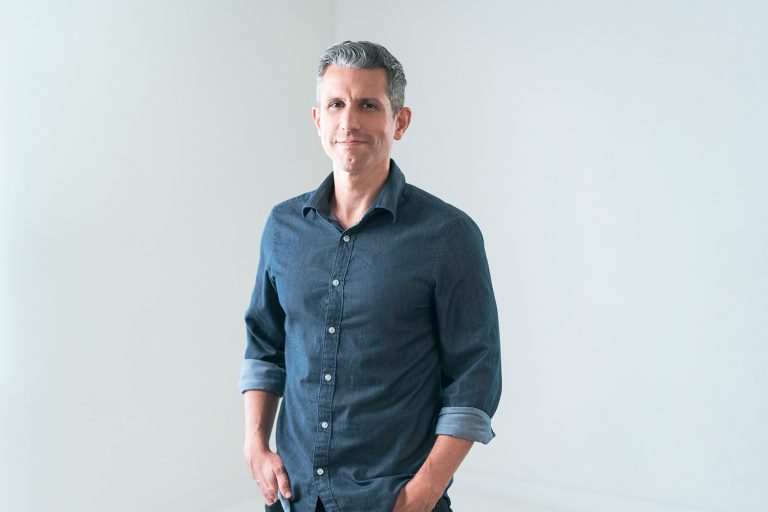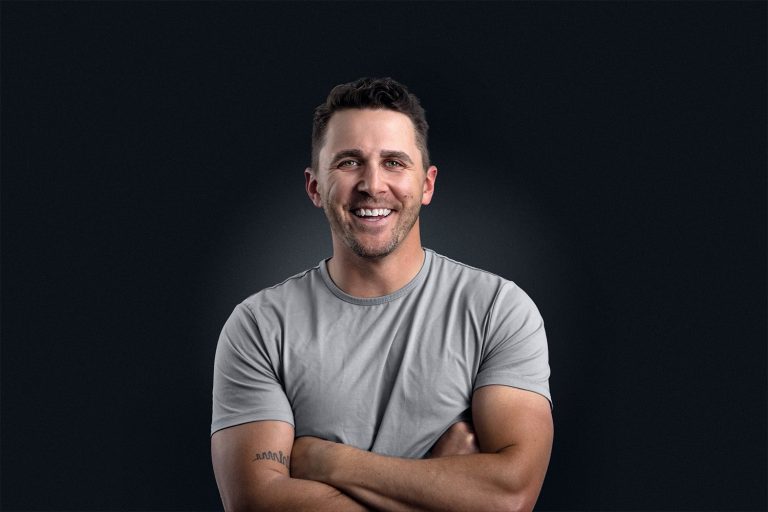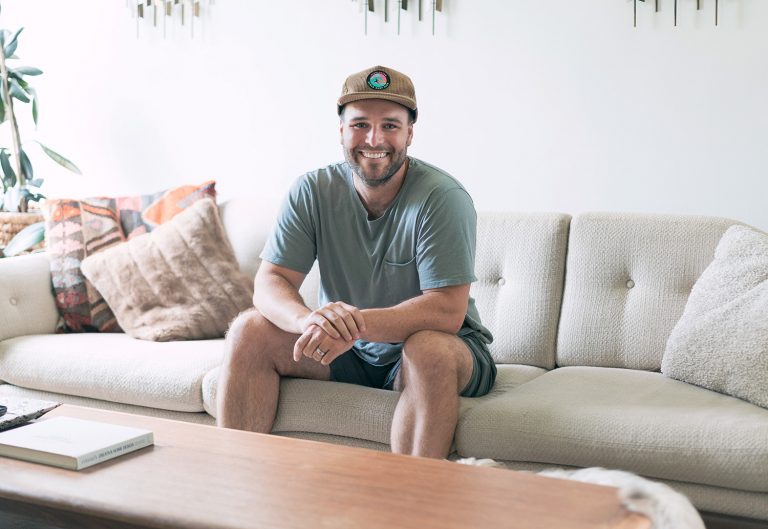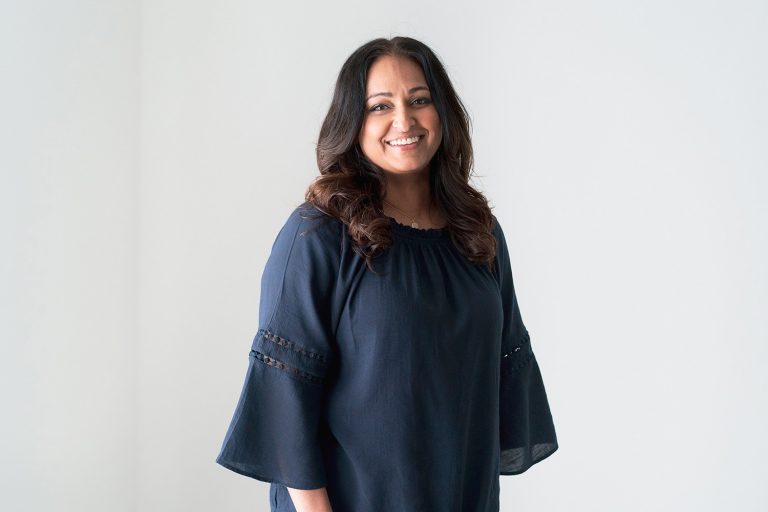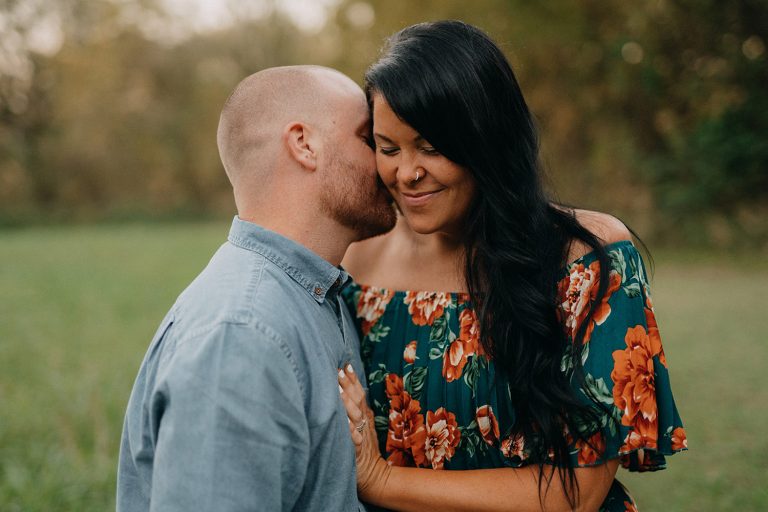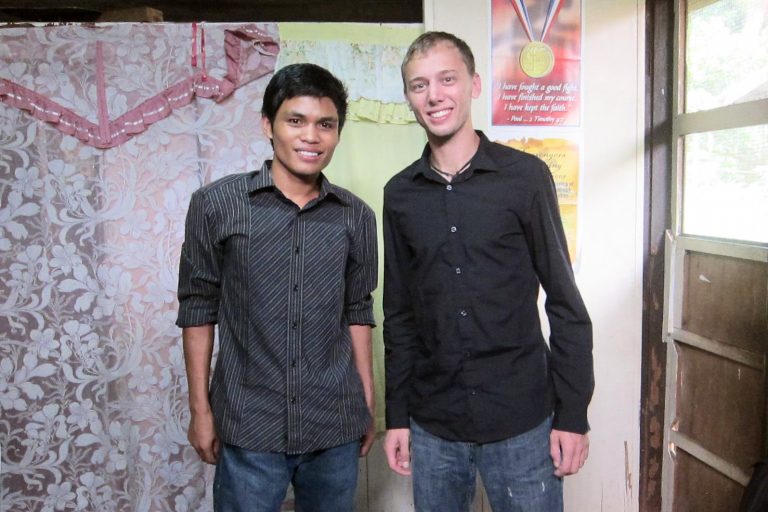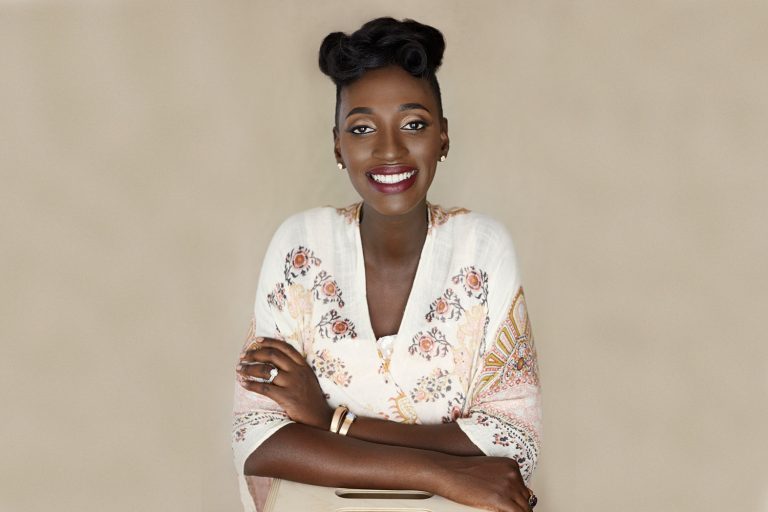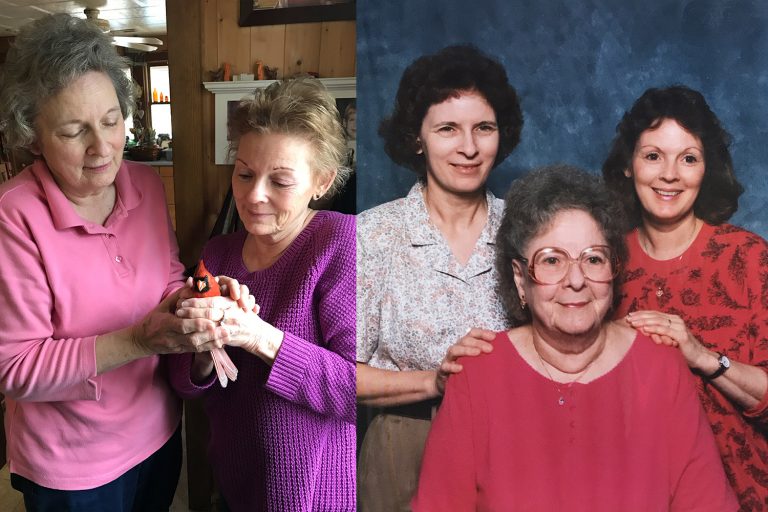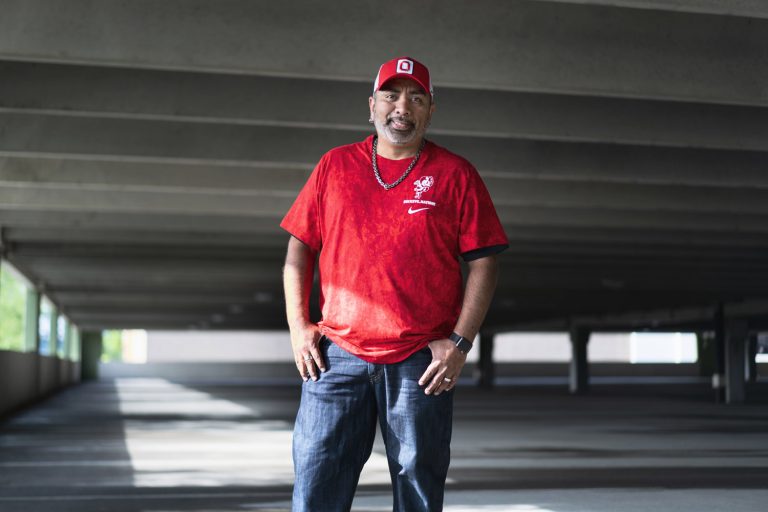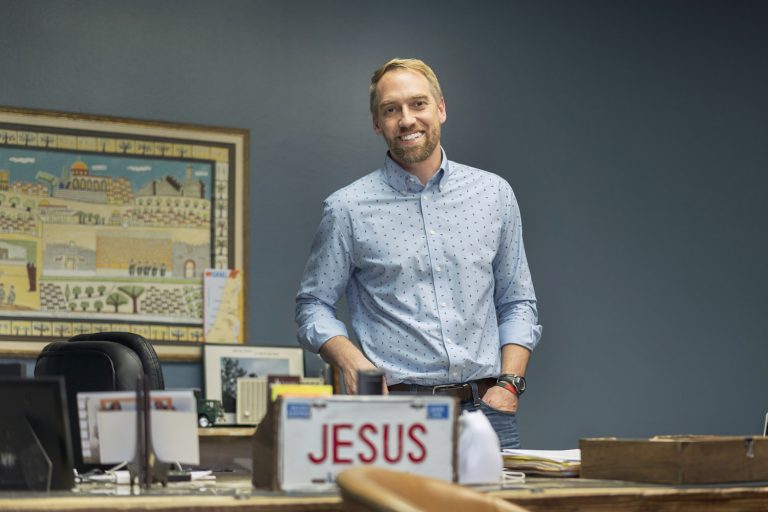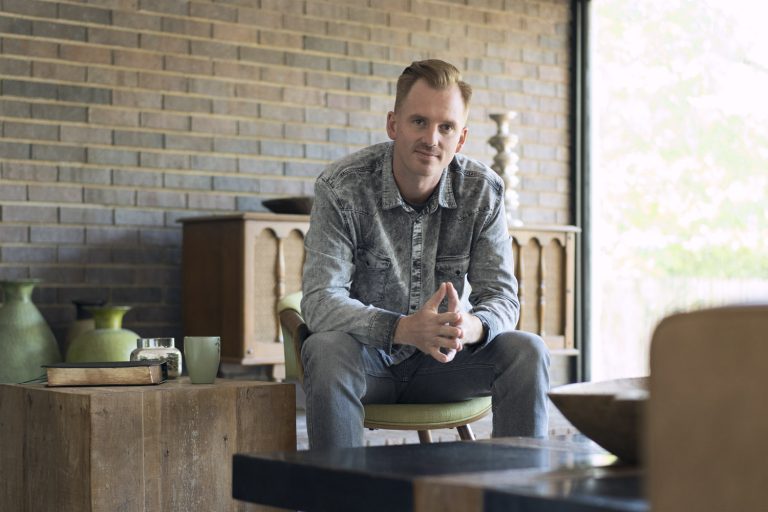Chris
Beauty Truth and Goodness
My name is Chris Myers. I live here in East Dallas with my wife and two daughters. I’m a pastor and an Anglican priest at a church called St. Bartholomew’s Anglican Church that I helped plant about eight years ago.
I was thinking about some experiences of God or ways that God has moved in my life. And I just kept coming back to, I’ve always struggled with people saying, “I heard God say, or God said this or that.” I grew up in a Christian home, with amazing Christian parents and when I was talking with them recently, my mom said that she that they’d just become Christians right before I was born. She just said, “You know, when we were raising you, we were just baby Christians ourselves.” And I never really thought about that, because you just think of your parents as so much older and wiser than you.
In the context I grew up in there was just a lot of confidence around people saying, “Well, I heard God say, or God said,” and there was no qualification around it, or nuance, or maybe even explanation of what that meant, or what the experience was like. And I never could figure out what people meant by that. So I’ve spent a lot of my life thinking about that question. When we say, God speaks, or I heard God, what is it that we’re talking about? And for me, I don’t know. It’s like, you almost have to learn to speak God yourself. That language, I mean, there’s part of it that’s understanding the scriptures matter, obviously…And that you have to have a relationship with God. But there’s a quietness to it, and intimacy to it that didn’t necessarily come through or I didn’t hear when I was growing up.
I had to go on my own journey to find it. I was just thinking about being in high school. I had this particular teacher, Mr. Biggers, who taught American Literature and Humanities to seniors. And in that Humanities class in particular, he took us through the history of Western culture and Western art, music, literature, painting, sculpture, and architecture. And really, the history of Western art is the history of Christianity. It was like this way of smuggling in the way that God had inspired or spoken to, however you want to put it, artists to bring these things into the world that have such beauty and resonance across centuries. I was just immediately pulled into that world.
He always took a group of seniors on a trip to Europe in the summer. And I worked this customer service job at a department store called Stein Mart, I think there used to be one here in Dallas, and I saved up all this money, so I could go on this trip. It was a 25-day trip to Europe to go see in person, all this stuff that we had been learning about. There were so many experiences on that trip, where you would walk into a place because so many of these pieces of art are in churches or sacred spaces, and just having a sense of the presence of God. What I would say now is that God was wooing me or speaking to me through art.
There was one particular moment when we were in Florence, I was sitting with a friend. And my teacher, Mr. Biggers came up and said, “Hey, I have these extra tickets to this exhibition at the Medici Palace do you want to go?” I didn’t know what it was, but I just said, “Yes.” And then we go into the Medici Palace and we go down into this basement. There are these drawings on the wall, and I’m like, 12 inches away from these drawings on the wall. These were drawings that Michelangelo had done in preparation for the Sistine Chapel. And maybe it was just the proximity of it, maybe it was the surprise of it, but it was just a very overwhelming moment. And again, I would say that was probably the voice of God, just connecting to me with me through beauty. And that’s been a huge part of my story.
And one of the ways that I tried to talk about God, is to use art or to talk about music because it’s been such a powerful connection point for me. I ended up studying literature and writing a PhD about a theologian, whose whole entry point into theology is beauty. It was like I was trying to backtrack to this original starting point of like, what is the voice of God? How do we hear it? How do we interact with it? How do we dialogue with God through what he’s saying, that’s been kind of a thread, for me, just experiencing God through art.
As I’ve studied more literature, poetry in particular, there are so many stories of people being converted to the faith through beauty, and that beauty is sort of bound up with truth and goodness. I think I had an intuitive sense of that, and now studying theology more formally, I realize that with Plato and then on through Agustin and Aquinas and all these great figures in the Christian tradition, they’ve always insisted that truth, beauty, and goodness are bound together. And I think I always thought of the voice of God was about just hearing the truth. And it’s it is that it certainly is that, but if truth is also bound up with goodness and beauty then hearing the voice of God can also be an experience of beauty or an experience of goodness. And it’s like it validated all the experiences that I had because I didn’t know that I had a way to talk about it before.
You talk to artistic people, and they kind of know what you’re talking about. But then the spiritual part of it gets a little bit fuzzy and vague, like, well, what is this? Well, I don’t know. But it feels like inspiration, or it feels like God or, or whatever.
So the interesting kind of coda to a lot of this is I ended up moving back. I left Amarillo, where I grew up for college, and for grad school I lived in New York City for a while and ended up coming back for some different reasons. But I was teaching in high school and was attending the church that I grew up in because the school was a part of the church and I had made some friends. We were playing in a worship band, and there was this New Year’s service that we were having the week of New Year’s, and they’re like, 2500 people in the room. And the senior pastor, after the worship time, asked me to stand up in the middle of the crowd. And this was like my living nightmare because I just remember growing up when this would happen when they would get prophetic words. And so he had a prophetic word for me. And there’s just so much wrapped up in this that kind of ties it together, that it, there’s almost humor in it. Because I was so terrified of those things, or I thought that they were so vague, or whatever.
He stands me up. And he prefaces what he says by saying, “Hey, I’ve known you your whole life. I don’t know what this means…But” When he said, “I don’t know what this means,” I was paying attention. Because it was like, I could tell whatever he was sensing was not something he was making up. And the thing that he said was, “It was like you were born in the wrong spiritual country. And you’ve been searching for people who speak your spiritual language and God is leading you into a place in a season where you will find people who speak your spiritual language.” And then he broke like one of the rules of giving prophetic words, which is no mates or dates. You know, you don’t say that there’s going to be a spouse or mate or what date something’s gonna happen. He said, “You’re going to meet the girl and all this stuff.” So I was, you know, I was pretty shaken by that.
What he said about being born in the wrong spiritual country, and the idea that there’s another spiritual language that other people speak. And it’s the language that you speak. It was, like this validation by God, that I had felt like I was outside. And it was kind of a yes and to that. Yeah, you have, but there’s something else was the and. But then it really tied a bow on and just thinking, oh, there are different spiritual languages and different ways that God speaks to people. And then the punch line to that whole prophetic word is I did pretty soon after that start dating, the woman who became my wife, and she was sitting three rows behind me that night. I didn’t know at that time that she was going to be that person.
We moved to Dallas, I came to seminary and through that, you know, ended up meeting these Anglican church planters, and found a spiritual home with people who spoke my spiritual language. And I remember telling my dad that I was thinking about becoming an Anglican priest. And he was like, “Well, that makes sense. You’ve been an Anglican since you were four years old.” And he didn’t mean it literally, it was just a joke that there was a sense, from a young age, that I was looking for something else. God used all these different things to lead me to the right spiritual country, and the people who spoke the spiritual language that I could speak.
So that’s kind of what God’s voice sounds to me like now, and I think it’s the same for anybody. As I read the spiritual writers throughout the Christian tradition, nobody is born fluent in that language of the spiritual language. You have to move deeply into it, and you have to be quiet. And you have to be open and curious to hear what God might be saying. And then even that, to say that God’s voice is like a metaphor, is not to reduce it at all because that helps me. Because I always thought people meant they literally heard the voice of God. And sometimes people say that they have that experience. And I don’t have any reason to doubt that sometimes people hear what they take to be an audible voice. But usually, it’s more intuitive. It’s more impressionistic, it’s more improvisational, and it has all these qualities that creativity has these qualities of art. So it makes sense to me that God used art, as a way to kind of open me up to different ways of thinking about about that.
Part of what I recognized in studying the Bible is, something that’s so obvious that we don’t ever think about it, that it’s literature, that the Bible as literature is the word of God. But it became so fascinating to me to think about the form in which he gave it to us. That was, you know, another piece of the beauty puzzle. And I remember being in class studying in particular, Luke, chapter 24, Jesus is walking the road to Emmaus, with the two disciples after the resurrection, and they don’t recognize him. Just that simple fact alone brings me deep comfort, that we can be walking along the way with Jesus, and he could be a stranger to us. There are times in our lives when he comes alongside us, and he’s a stranger, and that what happens for them can happen for us is that it’s, you understand it retrospectively, that they look back, after everything that’s unfolded. They’re like, “Oh, yeah, he was with us.” And what Jesus does is he opens the scriptures to them. And he tells the story of himself through the story of the scriptures. And that became such a huge motivation for me for the way I wanted to study the Scriptures, the way that I wanted to preach the Scriptures, the ways in which they pointed to Jesus.
But when I was coming into a more liturgical sacramental tradition when I was becoming Anglican. It was the second part of the story that became so resonant, which is when they get to the house and he shares a meal with them, it’s the movements of the Last Supper. It’s the movements of the feeding of the 5000. He takes the bread, he blesses it, he breaks it and gives it and it’s in that moment, that their eyes are opened and that they recognize him for who he is. So there’s this moment of revelation, there’s this epiphany of who Christ is as the resurrected Lord.
The thing that they say afterward they say two things. One is, it says he was made known to them in the breaking of the bread. So Jesus gives us this meal, not just a set of propositions, but a beautiful thing, a meal to make himself known to us. And then, when they’re walking back, they say, did not our hearts burn within us when he opened the word. So the word and the sacraments going together is, for me, maybe a way to think about to talk about it, or the way that I’ve thought about it is that relationship between word and sacrament is that same relationship between truth, beauty, and goodness, and that God gives us His Word. He gives us the table as a place where he promises to encounter us.
The Spirit inspires the scriptures. The scriptures, speak God’s voice to us. But then at the table, he says, “I’ll be made known to you in the breaking of the bread.” And there’s something deeply beautiful about that, and that it’s not just a set of propositions, even the Bible. Yes, there’s ethical content, there’s 10 commandments, there’s all those things, but so much of it, we only understand what it is by wrestling with it by reading it by encountering it new all the time, asking for God to speak with a living voice through it. He gave us a beautiful book, and then he gave us this beautiful meal, and His goodness and His truth come to us through the form and the beautiful thing. Yeah, so the voice of God is still a mystery that I’m pursuing, figuring out what it means to hear that God speaks. The spiritual masters of the Christian tradition tell us that you find that voice in silence, which is a fascinating paradox in that, to hear a voice, you have to be quiet. So that’s where I think the beauty is taking me now is into this quiet.


